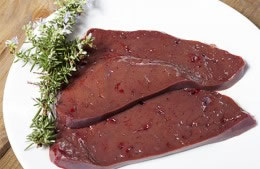Folate (B9)
Health benefits of Folate (B9):
Contributes to mental health, cardiovascular and immune system health, cell division, DNA creation and the reduction of tiredness and fatigue
The Worlds Science
What is folate?
Folate (vitamin B9) is a general term for a large family of naturally occurring molecules that are present in leafy green vegetables, citrus fruits, liver, and yeast extracts. By contrast, folic acid is a specific molecule that is only present in supplements and fortified food1.
Why does it matter to me?
Normal Amino Acid and Nucleic Acid Metabolism.
Folate acts as a co-factor in many enzymes that play a role in what is called ‘one-carbon metabolism’. These enzymic reactions play a vital role in the production of molecules that are essential for life such as amino acids and nucleic acids (DNA and RNA)2.
Cell Division
Cell division is the process by which the body grows, maintains the health of vital organs and repairs any damage that occurs to them. For cells to divide they must first replicate their DNA. Since folate is essential to produce DNA it is also essential for cell division3.
Blood Formation
Red blood cells (RBCs) are the main component of blood and to function properly they must have the correct size and shape. RBC formation is partly dependent on the presence of folate since folate deficiency causes a condition called ‘megaloblastic anaemia’.
Folate (vitamin B9) is a general term for a large family of naturally occurring molecules that are present in leafy green vegetables, citrus fruits, liver, and yeast extracts. By contrast, folic acid is a specific molecule that is only present in supplements and fortified food1.
Why does it matter to me?
Normal Amino Acid and Nucleic Acid Metabolism.
Folate acts as a co-factor in many enzymes that play a role in what is called ‘one-carbon metabolism’. These enzymic reactions play a vital role in the production of molecules that are essential for life such as amino acids and nucleic acids (DNA and RNA)2.
Cell Division
Cell division is the process by which the body grows, maintains the health of vital organs and repairs any damage that occurs to them. For cells to divide they must first replicate their DNA. Since folate is essential to produce DNA it is also essential for cell division3.
Blood Formation
Red blood cells (RBCs) are the main component of blood and to function properly they must have the correct size and shape. RBC formation is partly dependent on the presence of folate since folate deficiency causes a condition called ‘megaloblastic anaemia’.
This serious condition causes RBCs to become unusually large and gives rise to symptoms that include extreme fatigue, breathlessness and palpitations (irregular heartbeat)4.
Homocysteine Metabolism
Many studies have shown that unusually high levels of homocysteine (HC) in the blood over time is associated with an increased risk of hypertension and cardiovascular disease (CVD). Folate is one of a small number of molecules (another is vitamin B12) that reduces the level of HC in the blood. Therefore, making sure that the diet meets the RDA for folate will contribute to maintaining good cardiovascular health5.
Maternal Tissue Growth During Pregnancy
As a baby grows during pregnancy the rate of cell division in the developing foetus is very high. Therefore, a pregnant woman’s requirement for folate is greatly increased which explains why women are strongly advised to take folate supplementation during the first trimester. Failure to do increases the likelihood that the baby will be born with Neural Tube Deficits (NTDs) such as spina bifida6.
The UK Scientific Advisory Committee on Nutrition (SACN) has been recommending, for over a decade, the mandatory fortification of staple foods (e.g. wheat) to reduce the incidence of NTDs. However, unlike many countries the UK government has yet to act7.
Beyond this special case when folic acid supplementation is necessary, natural folate has been implicated in several important aspects of health, as set out below.
Immune System
Homocysteine Metabolism
Many studies have shown that unusually high levels of homocysteine (HC) in the blood over time is associated with an increased risk of hypertension and cardiovascular disease (CVD). Folate is one of a small number of molecules (another is vitamin B12) that reduces the level of HC in the blood. Therefore, making sure that the diet meets the RDA for folate will contribute to maintaining good cardiovascular health5.
Maternal Tissue Growth During Pregnancy
As a baby grows during pregnancy the rate of cell division in the developing foetus is very high. Therefore, a pregnant woman’s requirement for folate is greatly increased which explains why women are strongly advised to take folate supplementation during the first trimester. Failure to do increases the likelihood that the baby will be born with Neural Tube Deficits (NTDs) such as spina bifida6.
The UK Scientific Advisory Committee on Nutrition (SACN) has been recommending, for over a decade, the mandatory fortification of staple foods (e.g. wheat) to reduce the incidence of NTDs. However, unlike many countries the UK government has yet to act7.
Beyond this special case when folic acid supplementation is necessary, natural folate has been implicated in several important aspects of health, as set out below.
Immune System
Because folate is essential to produce DNA, it follows that too little folate in the diet may impair the production of white blood cells (WBC's)3.
WBCs protect us from infection and patrol the body destroying cells that may become cancers (i.e. cells that have begun to divide uncontrollably)8. Therefore, it follows that folate deficiency may give rise to two adverse immune related consequences.
WBCs protect us from infection and patrol the body destroying cells that may become cancers (i.e. cells that have begun to divide uncontrollably)8. Therefore, it follows that folate deficiency may give rise to two adverse immune related consequences.
1. Increase our susceptibility to viral and bacterial infections.
2. Reduce the ability of the immune system to identify and destroy cells that could potentially develop into cancer.
Although there is some evidence to support this from in vitro studies, the beneficial effect of consuming the RDA of folate upon the immune system in humans has yet to be conclusively demonstrated. However, it is an active area of current research9.
Psychological Function
One of the most dynamic and exciting areas of current research concerns the effects of folate on psychological function. Folate is utilised by nerve cells to produce molecules (neurotransmitters) that enable them to communicate with each other (e.g. serotonin and dopamine). Therefore, folate deficiency may reduce the ability of nerve cells to signal one another in an optimal way10.
This may interfere with several important cognitive functions. For example, there is a growing body of evidence which suggests that folate deficiency is associated with mild cognitive impairment (including memory loss) and changes in mood that increase the likelihood of mild clinical depression11,12.
Moreover, folate deficiency has also been associated with an increase in the likelihood of developing severe neurological conditions such as Parkinson’s disease13 and Alzheimer’s disease14.
As always, more research will be required to further understand the role played by folate in psychological function and how folate deficiency contributes to psychological ill health. However, the best advice at present is to ensure that your diet meets the RDA for natural folate over time.
2. Reduce the ability of the immune system to identify and destroy cells that could potentially develop into cancer.
Although there is some evidence to support this from in vitro studies, the beneficial effect of consuming the RDA of folate upon the immune system in humans has yet to be conclusively demonstrated. However, it is an active area of current research9.
Psychological Function
One of the most dynamic and exciting areas of current research concerns the effects of folate on psychological function. Folate is utilised by nerve cells to produce molecules (neurotransmitters) that enable them to communicate with each other (e.g. serotonin and dopamine). Therefore, folate deficiency may reduce the ability of nerve cells to signal one another in an optimal way10.
This may interfere with several important cognitive functions. For example, there is a growing body of evidence which suggests that folate deficiency is associated with mild cognitive impairment (including memory loss) and changes in mood that increase the likelihood of mild clinical depression11,12.
Moreover, folate deficiency has also been associated with an increase in the likelihood of developing severe neurological conditions such as Parkinson’s disease13 and Alzheimer’s disease14.
As always, more research will be required to further understand the role played by folate in psychological function and how folate deficiency contributes to psychological ill health. However, the best advice at present is to ensure that your diet meets the RDA for natural folate over time.
Can I just take folic acid?
Folic acid is the synthetic version of folate and is often used in food fortification, however there are doubts about the effectiveness of folic acid compared to naturally occurring folate, for more detail see the link to Paul Finglas from the Institute of Food Research below.
Folic acid is the synthetic version of folate and is often used in food fortification, however there are doubts about the effectiveness of folic acid compared to naturally occurring folate, for more detail see the link to Paul Finglas from the Institute of Food Research below.
Review date: 1/12/2024
Next review date: 1/10/2025

291
445
https://www.checkyourfood.com/content/blob/Micronutrients/top-foods-for-Folate-B9.jpg
Top 6 ingredients for Folate (B9) taking into account portion size and cooking retention factors
Filter ingredients by:

 About nutrients
About nutrients
 All nutrients
All nutrients
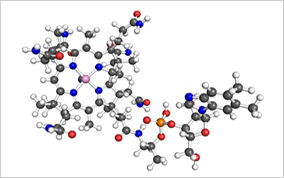 vitamins
vitamins
 minerals
minerals
 phytochemicals
phytochemicals
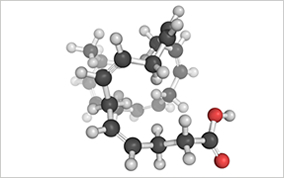 fatty acids
fatty acids
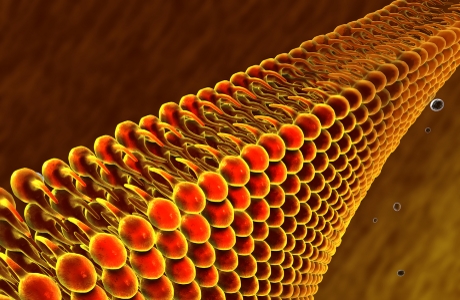 macronutrients
macronutrients
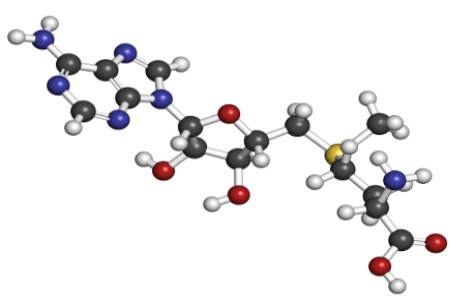 amino acids
amino acids



